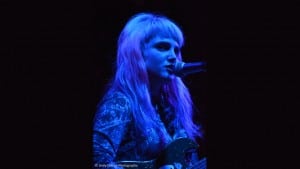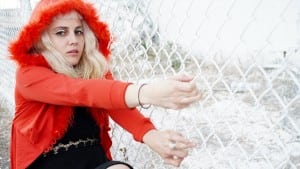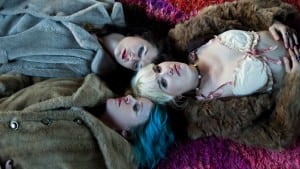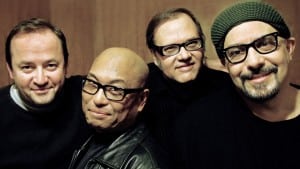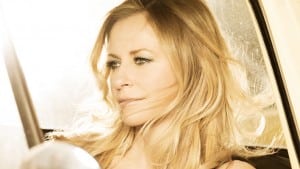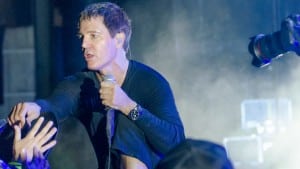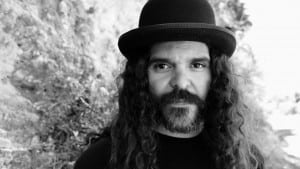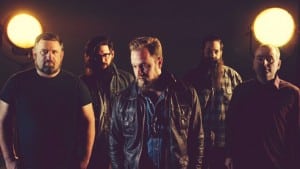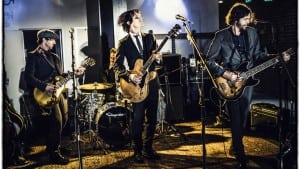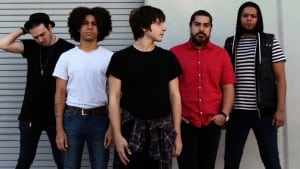“I’m really excited about everything, even if I don’t sound like I am,” Elizabeth Le Fey, aka Globelamp, explained to the crowd at the Bootleg Theater Wednesday night.
Le Fey’s stage presence was decidedly tame for being at her own album release show, due perhaps less to the jet lag she credited than to the stripped-down and deeply personal nature of the songs she was performing.
The Orange Glow, a beautiful psych-folk album, was born out of an ugly year for Le Fey. In addition to dealing with the death of one of her dearest friends, her breakup with Foxygen’s Sam France turned nasty, as everything from a lawsuit to rabid internet hate derailed her personal life and career (she was a touring member of Foxygen and working on another project with France). The resulting album is filled with references to both occurrences, giving it a raw emotionality and intimacy, that’s only emphasized by Le Fey’s dynamic voice.
What is layered and ornamented on record was presented on Wednesday in its purest form: Le Fey and a guitar. The effect was like home demos being played live, which worked well for songs like the melodic “Master of Lonely”. She grew slightly more timid after moving to the keyboard (borrowed last-minute from her 11 year old brother) for a few songs, then thundered back with fan favorite “Gypsie’s Lost.”
What always work across the 10 song set was Le Fey’s haunting delivery. Songs like “The Negative” and “Controversial/Confrontational,” had Le Fey throwing her voice from a child-like whisper to full-blown range, often in the same line. While “Daddy’s Gone,” a blues-stomper and show highlight off of 2014’s Star Dust, threatened to blow the roof off the place.
Despite her cotton candy hair, knee socks, and glittery makeup, there’s an undeniable seriousness and wise-beyond-her-years wisdom to Le Fey, an impressive self-assuredness that allows her to get up on stage alone, and bare her soul and pain.
Watching her perform the wistful “Washington Moon,” to a crowd of 50, one gets the feeling that she would have played the same exact way to five people. She’s a poet and songwriter at heart, taking more stock in the creative process than the limelight of performing. Her philosophy is beautifully spelled out in the excellent “Artist/Traveler,” singing, “You’ll know the real point of art and poetry is to somehow connect with the mystery.”
